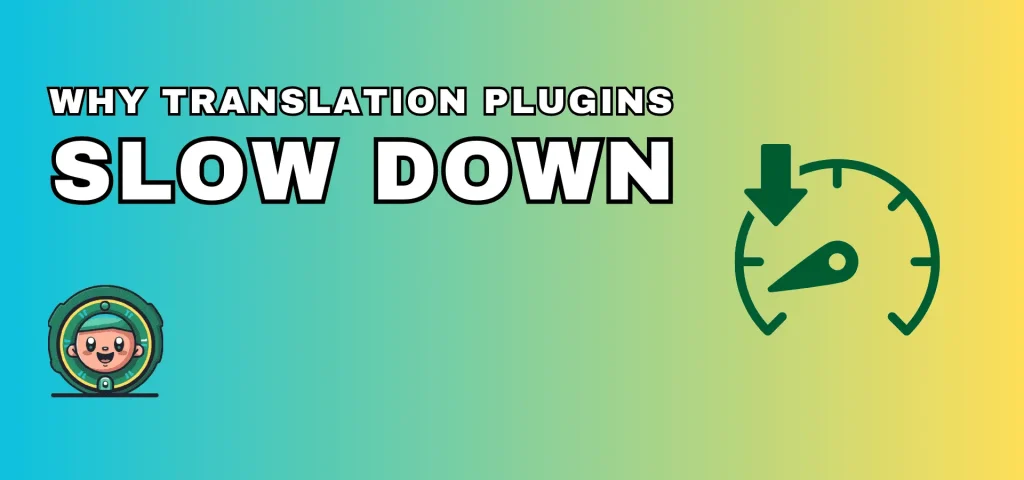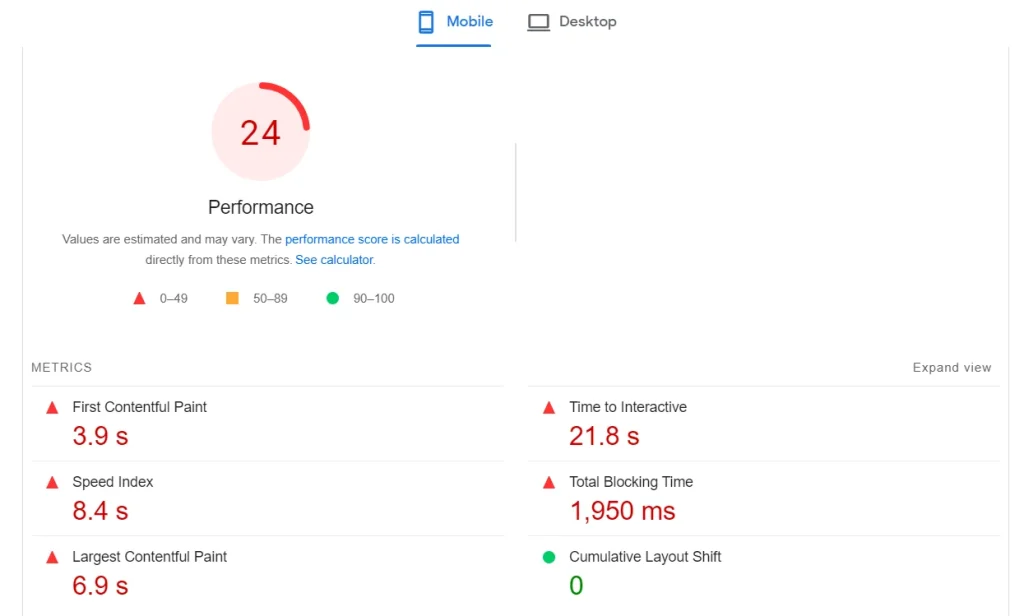We'll delve into details about the main issue with these plugins, which is database overhead and offer a couple of alternatives as a solution to keep your website's desired functionality without sacrificing its performance.


The core issue – database overhead
Translation plugins often contribute to the expansion of your site’s database. Let’s take a look at WPML, a popular translation plugin for WordPress. It essentially duplicates your existing content for each language you intend to support. This duplication extends to posts, pages, custom post types and even taxonomies.
This way of operating has two main negative features:
- Content duplication: Every piece of content on your site isn’t just translated but it’s duplicated. WPML generates a replica for every language you’ve enabled. This causes your database entries to exponentially grow, causing bloat and slower response time.
- Growing query complexity: This is the result of the first negative feature (content duplication). As content gets duplicated for each language, the complexity of database queries increases. Now when a user requests a page, WPML must go through a huge dataset of duplicated content to deliver the requested content in the chosen language.
These two features increase query execution time which directly impacts Time to First Byte (TTFB). TTFB measures how long it takes for a client’s browser to receive a response from the server. Slow TTFB negatively affects your website’s SEO performance and user experience.
What are alternatives and solutions?
Let’s explore 3 main ones that strike a balance between multilingual functionality and site speed.
- Choosing the right plugin (TranslatePress):
- No duplication: Unlike some other translation plugins, TranslatePress avoids content duplication. It translates content on the fly, avoiding bloat that slows down your site.
- Minimal impact on database performance: By eliminating duplicate content, the database structure remains compact and efficient. This results in quicker query execution times, contributing to faster TTFB and a positive user experience.
- Integration with caching plugins: TranslatePress is compatible with the best caching plugins which ensures that translated content can be served quickly and maintaining optimal site speed.
- Database optimization
Your website’s database is a place where information about posts, images and all other content are stored. Bad translation plugins make this place messy and unorganized due to duplicate content. Optimizing the database involves cleaning up unnecessary data and making sure the website can quickly process information, making it run faster and smoother.
It is typically a task for experienced web developers. It involves working with the backend of the website and understanding the database structure.
- Multisite install
WordPress Multisite is a feature for users who want a convenient way to manage multiple websites from a single control center. In this case, the reason is the need for multilingual functionality while maintaining site speed.
Let’s go over the reasons why this is an excellent choice:
- No duplication: In a Multisite setup for multilingual purposes, each site can represent a specific language. The default language of WordPress for each site can align with the desired language. This way we reduce the need for translation plugins for the primary content. Once again this reduces database bloat.
- Better resource allocation: Because each site operates independently, the server’s resources are distributed effectively, resulting in faster response time.
- Easier to scale: As your business and audience grow, adding a new language will require less hassle. Your sites and resources will remain organized with each new language added, maintaining optimal performance.
In conclusion, the quest for multilingual websites is finding a balance between global accessibility and page speed. While translation plugins may seem like an easy way to bring your content internationally, you must be aware of potential drawbacks. If you don’t plan and do the necessary research, it will be difficult to scale up. Choosing the right tools and experienced developers who understand how the backend operates for your multilingual site will save you lots of time and headaches down the road.
